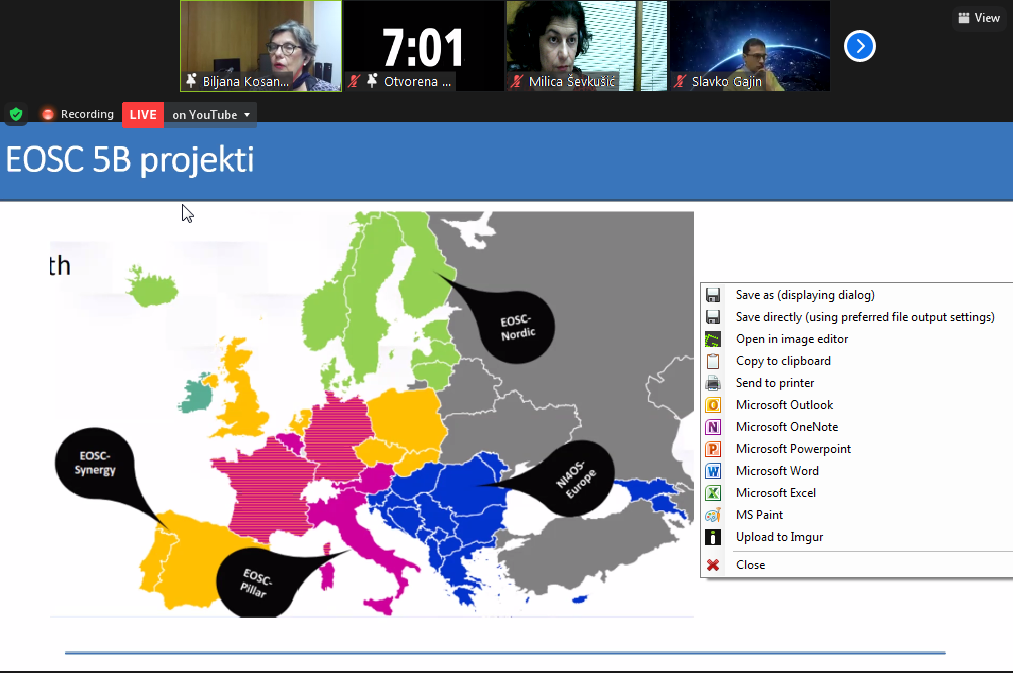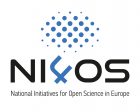Presenting the latest Open Science developments in Serbia

NI4OS-Europe National Capacity Building Training in Serbia was organized on 6 November 2020, as part of the third edition of Open Science Days, a biannual event presenting new developments in all areas of Open Science (OS) in Serbia. The event was organized in a virtual environment (Zoom sessions and live streaming on YouTube) by the University of Belgrade, a partner in the NI4OS-Europe project. It focused on local developments and all presentations were in Serbian.
During the first day of the Open Science Days, the audience could hear about recent OS developments in Europe and Serbia, the UNESCO Recommendation on Open Science, the development of Open Access policies for research infrastructure in Serbia, responsible research and innovation, local and European efforts to make Article Processing Charges more transparent, Serbian Citation Index as Serbia’s major Open Access journal publishing platform, the development of academic repository networks (a, b), citizen science projects as an emerging trend in Serbia, striving to develop a sustainable research assessment, and the first comprehensive manual on OS in the Serbian language.
The NI4OS-Europe session, held in the morning of the second day, outlined a broader framework for all these efforts and achievements. The main goal of the capacity building training was to inform OS stakeholders in Serbia about the role, tasks, and outputs of the NI4OS-Europe project and to raise awareness of EOSC, to highlight the importance of interoperable infrastructure and services, FAIR principles, open research data management and openness throughout the research lifecycle. NI4OS team members from the University of Belgrade Computer Centre and the Institute of Physics (University of Belgrade) sought to explain the complexity of EOSC as a concept and an undertaking (Milica Ševkušić) , highlighting the importance of policy harmonization, standardization and regional and pan-European collaboration (Biljana Kosanović). The two-hour session included six presentations. Particular focus was laid on the tangible benefits for the stakeholders embodied in tools (NI4OS Catalogue, License Clearance Tool, repository policy generator, and NI4OS vs. Covid-19 – Dr. Branko Marović), computing infrastructure (EOSC virtual research environment – Dr. Dušan Vudragović) and services (cloud computing – Dr. Slavko Gajin), and best OS practice (application of open-source software in open data visualization – Vladimir Otašević) defined and/or developed under the NI4OS-Europe project.
The FAIR principles, present in each segment of the two-day conference, were additionally underscored in the session dedicated to the EOSC co-creation project Boosting EOSC readiness: Creating a scalable model for capacity building in RDM.
The audience of NI4OS-Europe session included 64 attendees on Zoom and 20 participants watching live streaming on YouTube. Most attendees were researchers (about 50%). The audience also included librarians, students, representatives of research and e-infrastructures, and science promoters. According to the feedback received so far, the topics were relevant and most attendees were highly satisfied with the presentations. They highlighted the complexity of the topics, especially in technical terms, and expressed their interest in participating in further training on Open Science, EOSC and Research Data Management.
